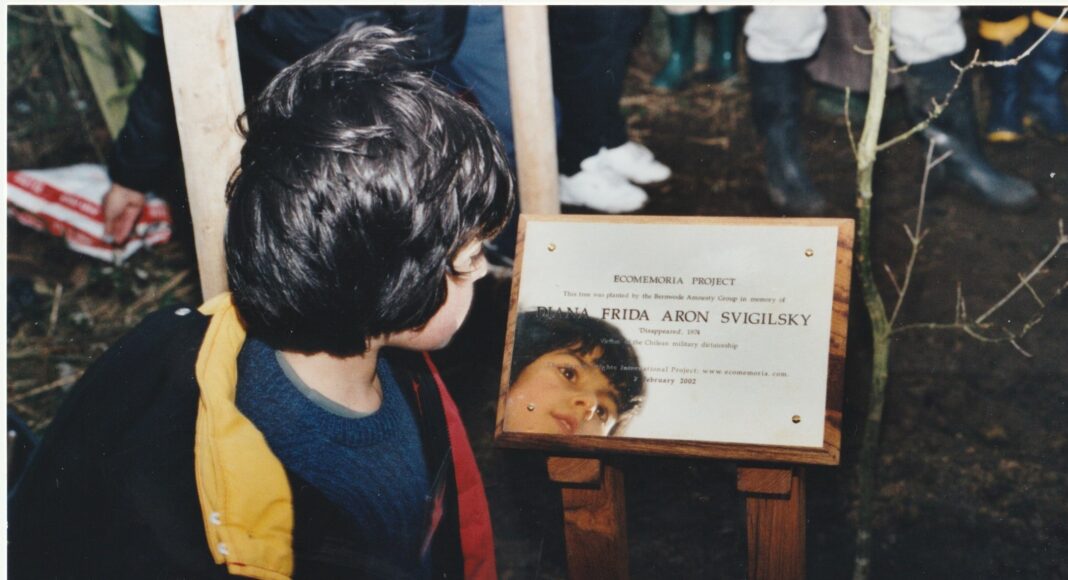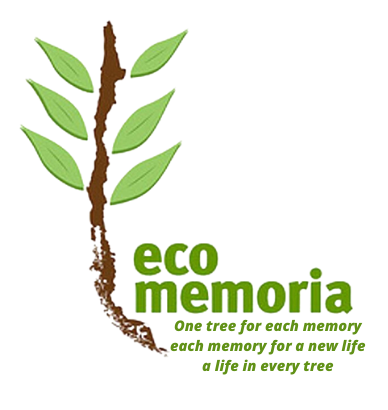We write this as we approach the 50th anniversary of the bloody military Coup d’état that killed President Salvador Allende, put an end to democratic rule and unleashed a systematic reign of terror to crush thousands of supporters of the Popular Unity Government in Chile.
We write as grandmothers, mothers and children of exiles that escaped the secret torture centres, the disappearances, the arbitrary executions and the mindless brutality in Chile.
We write this call for solidarity, as Ecomemoria, a project by a small group of exiles for whom memory has become a lifetime act of defiance.
Since arriving in the UK, the Chilean exiled community and our supporters have tirelessly searched for our loved ones and campaigned for justice and an end to impunity in Chile. Following the arrest of General Pinochet in London in 1998 we knew we had to keep our campaign in the spotlight so that the dictator would be extradited to face trial in Spain. We carried out creative “agit-prop” actions for 503 days outside the House of Parliament, Belmarsh Prison and the Old Bailey courts, and in Virginia Water in Surrey.
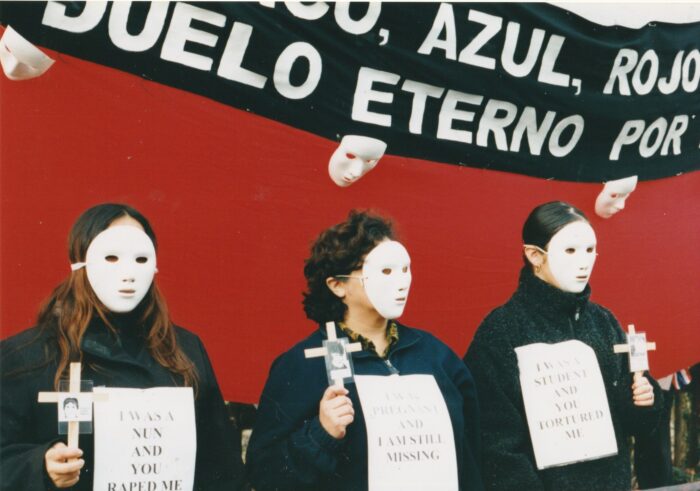
One of those actions, on 23 March 1999, involved the careful and meticulous work of transforming Parliament Square into a site of memory and resistance. Many hands, young and old, over steaming bowls of porotos con riendas, worked over several days to make 3,000 sticks and crosses with names, pictures where possible, and dates of disappearance or execution of all known victims.
It was this action in Parliament Square that gave birth to the idea of the Ecomemoria Forest in Chile.
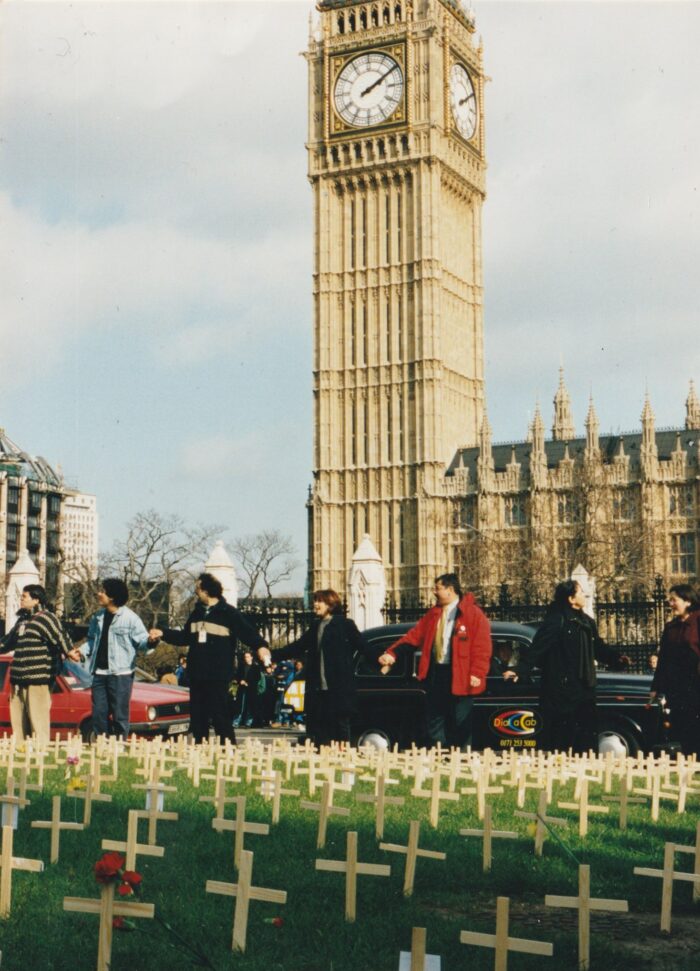
After political deals were brokered and Pinochet was sent home on grounds of ill-health, Ecomemoria was born. Ecomemoria is a sister project to Memoriaviva.com, a collective that was created at the same time and that documents, archives, and disseminates information on human rights violations from 1973-1990.
Ecomemoria is a response to the impunity, human rights violations, ecocide, and mass deforestation that a new ‘Chicago-boys-free-market Chile’ carried out and maintained, long after the coup.
Our mission is to create an ecological reserve, a site of historical memory, through the planting of a tree for each of the disappeared and politically executed victims of state terrorism.
The project has two phases. We launched Phase One, the Virtual Forest of Memory, in 2002 in Oxford, with the planting of a tree for Diana Frida Arón Svigilisky, a 24-year-old journalist who disappeared on 18 November 1974. After this, groups of Chileans and their families and supporters around the world started to find ways to plant trees for their relatives, friends, comrades, and loved ones.
Since 2002, this first phase has seen over 130 trees planted in 11 different countries around the world.
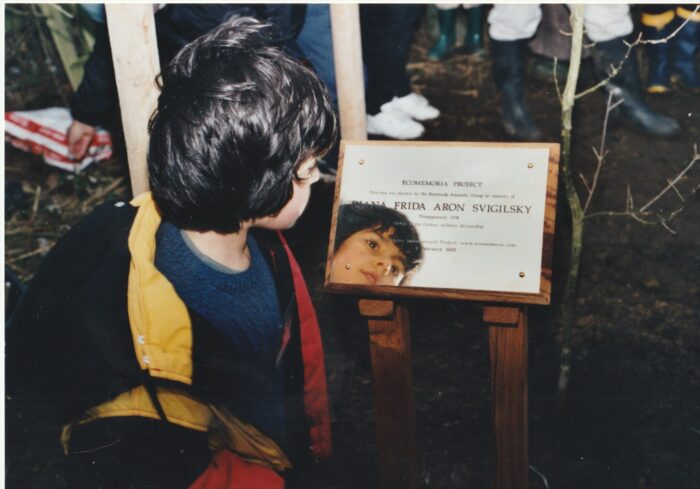
Thanks to the solidarity of our friends, supporters, human rights defenders and our comrades in the labour movement, and everyone who took part in our fundraisers, we managed to buy a plot of land in Chile and launch Phase Two, The Forest of Memory/El Bosque de la Memoria.
This year on the 50th anniversary of the coup we launched the second phase which involves planting more than 3,000 native trees in an Ecomemoria site in Curacautín, in the south of Chile. Each tree will embody the life, hopes and aspirations of each of the victims of the military dictatorship, becoming a lasting memory in the landscape.
So far, with the support of the families of the disappeared, the local community, ecological and human rights collectives, the expertise of a forestry engineer, and the blessing of the Lonko, we have planted 600 trees.
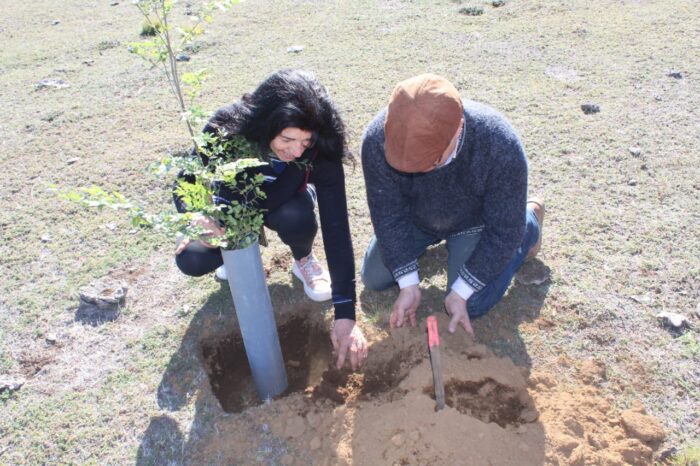
We are a small collective that believes financial and political independence is vital in preserving memory for the people, by the people.
This is why it has taken us a long time to get this far.
We still have a way to go to reach our goal.
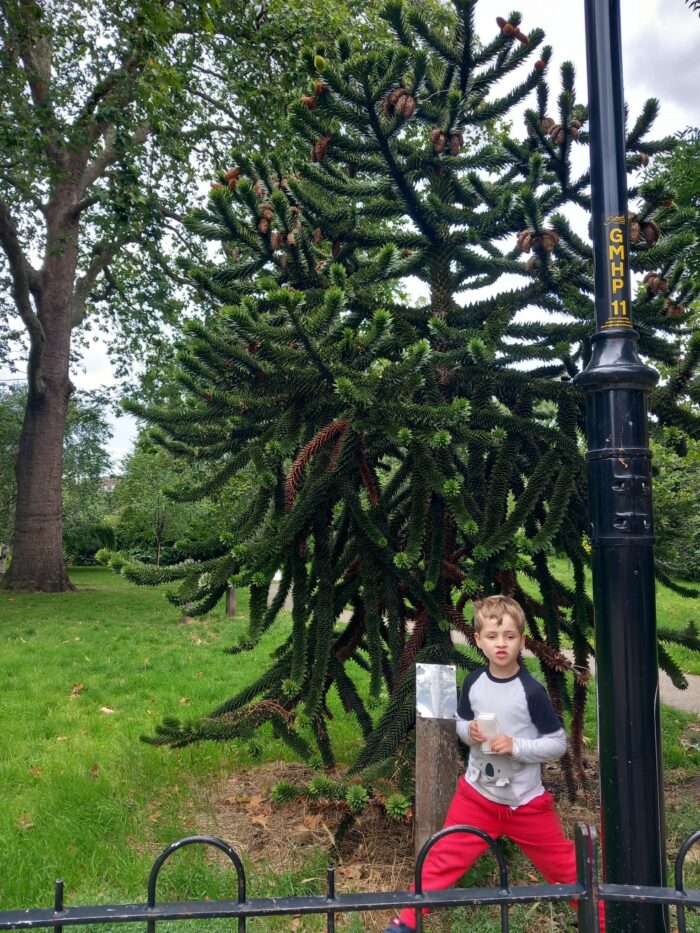
We need help to clear pathways, build a visitors centre, and source over 3,000 trees – one for each life – in time for our launch on 9 September 2023 in Curacautín, our tribute to Presidente Allende and the martyrs that lost their lives because they believed in a better world.
We call on all readers and supporters of Latin America Bureau, who like us believe the only response to the brutality of a dictatorship is that of life, to adopt a tree or simply make a donation so we can make sure our dream becomes a reality.
Head to www.ecomemoria.cl to adopt a tree and donate.
Email us ecomemoria50years@gmail.com for more information.

